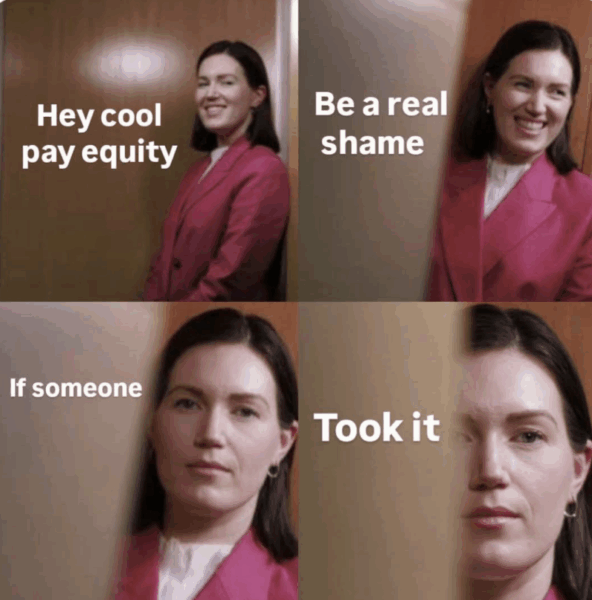Finally…
Unions release plan to bring electricity back into public ownership
The NZCTU Te Kauae Kaimahi is calling on political parties to adopt their new policy to lower energy bills and protect manufacturing by bringing the electricity gentailers back into public ownership.
The plan would involve government using the dividends from its shares in the gentailers to purchase the remaining shares until it reaches full public ownership.
“Aotearoa needs an electricity system that produces affordable renewable energy to support a thriving economy and lower household living costs,” said NZCTU President Richard Wagstaff.
“The partial privatisation of our electricity system has prevented growth in our generation capacity. A state of manufactured scarcity has delivered rising energy bills for households and businesses and huge dividends to gentailer shareholders.
“Many workers are making difficult decisions about what to sacrifice so that they can keep the heating on. We are also seeing worksites across the country closing due to rising energy bills.
“Treating the electricity market as a source of profit has led to us this point. We must instead treat the market as a public utility that serves the interests of working people,” said Wagstaff.
“We need to fundamentally change our approach to delivering electricity. Electricity supply and demand should be managed as an economic development and industrial policy problem – not a revenue maximising concern for shareholders,” said NZCTU Economist and Policy Director Craig Renney.
“The NZCTU proposes that government should use its dividends to progressively bring the gentailers back into full public ownership. It should also use its power as a major shareholder to direct the gentailers to support the wider economy and network resiliency. Bringing on new generation and delivering the green energy transition need to be priorities.
“If we don’t tackle this problem, New Zealand will continue to deindustrialise at pace, meaning the loss of good jobs and incomes for many workers. New Zealanders will also face ever rising electricity bills, deepening the cost-of-living crisis.
“The choice now rests with political parties. They need to deliver bold change to lift our economic performance and make energy more affordable. The alternative is to continue with a system that is driving deindustrialisation and energy poverty,” said Renney.
…the reality is that the Unions are the only institution on the left who have the braintrust and intellectual heft to suggest policy.
To date the Union movement has been trying to negotiate with the Political Right for Workers Rights and in the past, to be fair, they have had on Opposition who could be reasoned with, but the millisecond ACT and NZF held sway, there was never an Opposition who wanted to be reasonable.
The Minister for Handmaids, Brooke Van Velden, is here to destroy the Union movement, the Political Right want a war with Unions and the Union Movement hasn’t really known how to deal with that because their complacency and refusal to be militant left them on the back foot.
It has become glaringly apparent to even the Unions that they have no option but to fight now and part of that fight is policy construction that seeks to answer serious issues within the economy, their proposal on Energy reforms is exactly the sort of idea creation they need.
I applaud them finally getting in the right to fight.
It’s about time.

Increasingly having independent opinion in a mainstream media environment which mostly echo one another has become more important than ever, so if you value having an independent voice – please donate here.



The NZCTU proposal makes far more sense than the BS presented by the CoCs today.
If our government thinks importing LNG/CNG is a winning solution to our energy problems, then we have far bigger problems.
How about all the gas burning ovens, restaurant kitchens, milk powder drying machines. All taking the load of electricity. etc etc
Gas is not easy to replace with electricity (which of course would blow up electricity consumption? Brownouys anyone.
A key point is that landed imported LNG/CNG would be many times more expensive than our current gas prices. That’s without even factoring ship to shore infrastructure.
I suspect many commercial and industrial users would find the cost intolerable.
If Methanex simply stopped producing for export, we would have plenty for our consumers and industry.
Let’s stop exporting our gas via foreign-owned Methanex.
Also, let’s subsidise Solar PV and storage for homes and businesses.
It isn’t complicated.
Well done NZCTU and kind of you not to broadcast that the Key government made the changes in April 1999. I wonder whether JK has shares in any or all of them. Talk about a ‘cash cow’ and with more than a hint of ‘conflict of interest’. So how can’t you voters, with your heads in the sand, see why the wealthy keep getting wealthier while those in genuine need continue to prop up the country? The CoC’s mealy-mouthed solution on RNZ this morning just proves how out of touch they are. Bring on their demise and ‘Left’ announce this as a priority! A country’s public services should be state-owned in order to elimate the greedies lined up to clip the ticket!
Just had to read the 1st paragraph to realise this was a great idea which will probably go nowhere like CGT.
This is also what ‘Old Labour’ used to be all about instead of setting up working committees to help Hipkins work out the difference between a man and a woman.
This policy is an absolute nobrainer. By which I mean, anyone that opposes this (still too moderate) policy literally has no brain.
Bob the fart will but then he has a hardrive instead of a brain
Instead of suggesting progressively buying back shares from dividends, why don’t Labour just say they are going to nationalise power companies once in power and reduce power costs to reflect the actual cost of assets and not a notional valuation based on the marginal cost to produce an extra unit of power.
And then when in power select a retrospective valuation date and pass a law under urgency allowing the government to acquire the shares at that valuation under compulsion.
Why try and complicate the fucking thing just to make it seem more palatable and draw out the ideal outcome which is competitive power prices that means NZ companies can compete. The idea has nothing but drawbacks and gives opponents years to moan about it instead of 14 days.
Bang on.
Sounds perfect solution thanks Rangi
This government is headed in the opposite direction .Their proposed capital raise is in fact the government selling the shares to the private money sector .
Given that we live in a capitalist system, the electricity industry does not need to “serve the interests of working people”. It needs to serve the needs of capitalist production. If at the same time it can serve the interests of working people that is a bonus.
The problem is that the New Zealand electricity industry does neither and the failure which will be most exercising the minds of those outside of government is its failure to provide a sustainable and affordable supply of electricity for the needs of business.
To buy the electricity business back from the generators and lines companies would be to reward them for their decades of monopolistic highway robbery and abandonment of social responsibility. It would not in itself add a single kilowatt of to the national generation capacity.
The nation would be justified in telling the current owners “You have recovered your initial investment many times over through exorbitant profits and capital gain. Now because of your gross failure to act as responsible suppliers, we are taking the industry back without compensation”.
If the government wanted to take a line slightly less hostile to the electricity industry and therefore less friendly to the real capitalists who actually invest in new plant and produce stuff, then it could take over the role abdicated by the electricity industry, the task of developing new generating capacity.
But this government won’t do that either. It won’t serve the interests of working people, and it won’t serve the interests of seriously productive capital. It only knows how to serve the interests of the rent-seeking monopoly capitalists who are well on track to destroy the New Zealand economy.
Outright confiscation, though certainly justified by Gentailer performance, is to be avoided. A compulsory buyback at the price they paid for the assets is irrefutably just however – and they got those assets for a song.
While the government (and other political parties = consensus) are at it, can they break up Fonterra? The way they treat Kiwi is disgusting. To say that we should not receive price protection from world prices (given it is our environment that the effen farmers are rapidly destroying with the over intensification of dairy) is totally unacceptable and evidence of how little Fonterra care about the country that allows for its environmental degradation.
I thought this was a good idea.
I think most of the private shares are held by investment funds and the like, not the “mum and dad investors” John Key once spouted on about. Why progressively use dividends to buy these companies back, that would take years. The Government should just nationalise them overnight, remove the profit motive from these companies and NZers would instantly receive a substantial decrease on their power bill just from taking out profits.
Comments are closed.